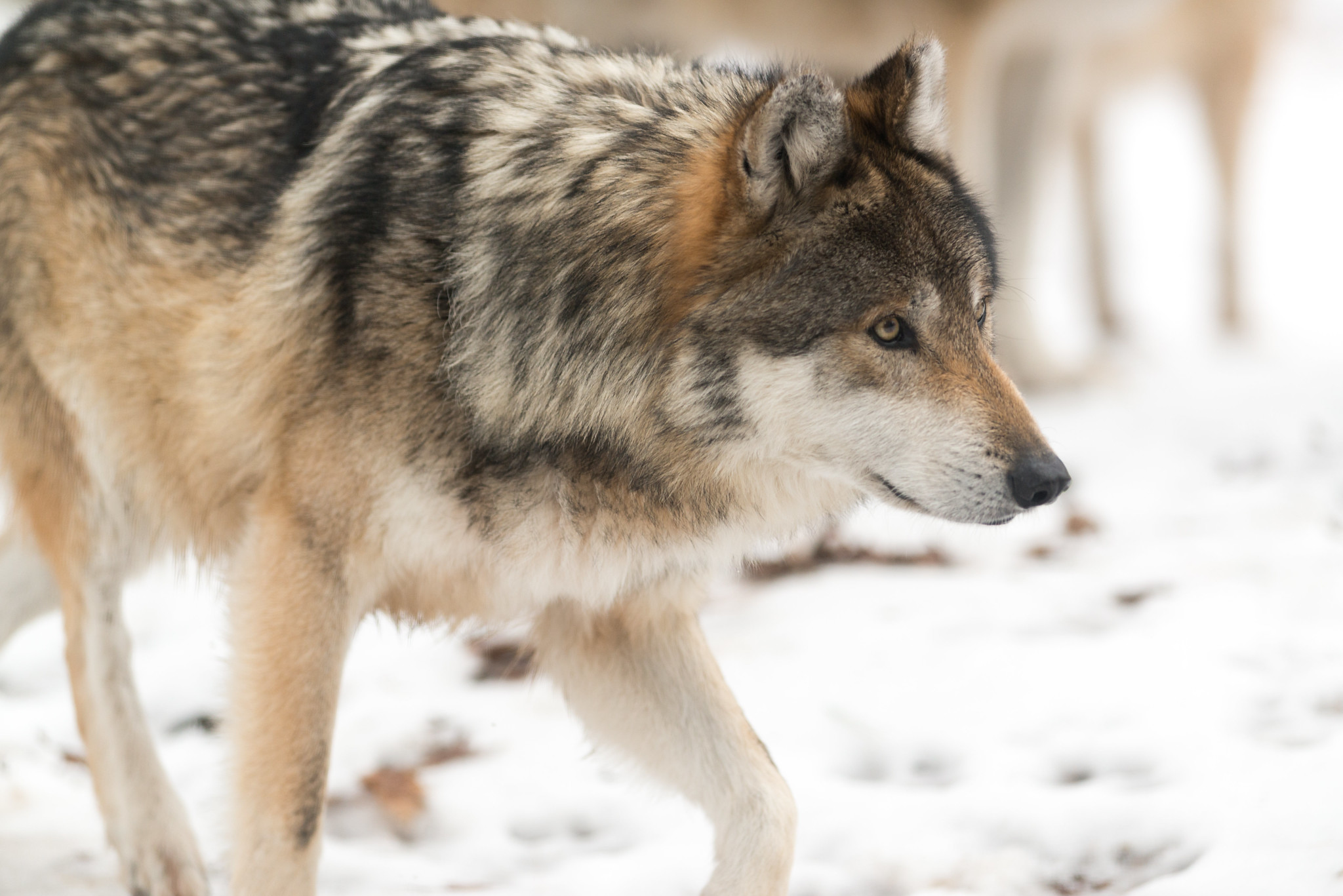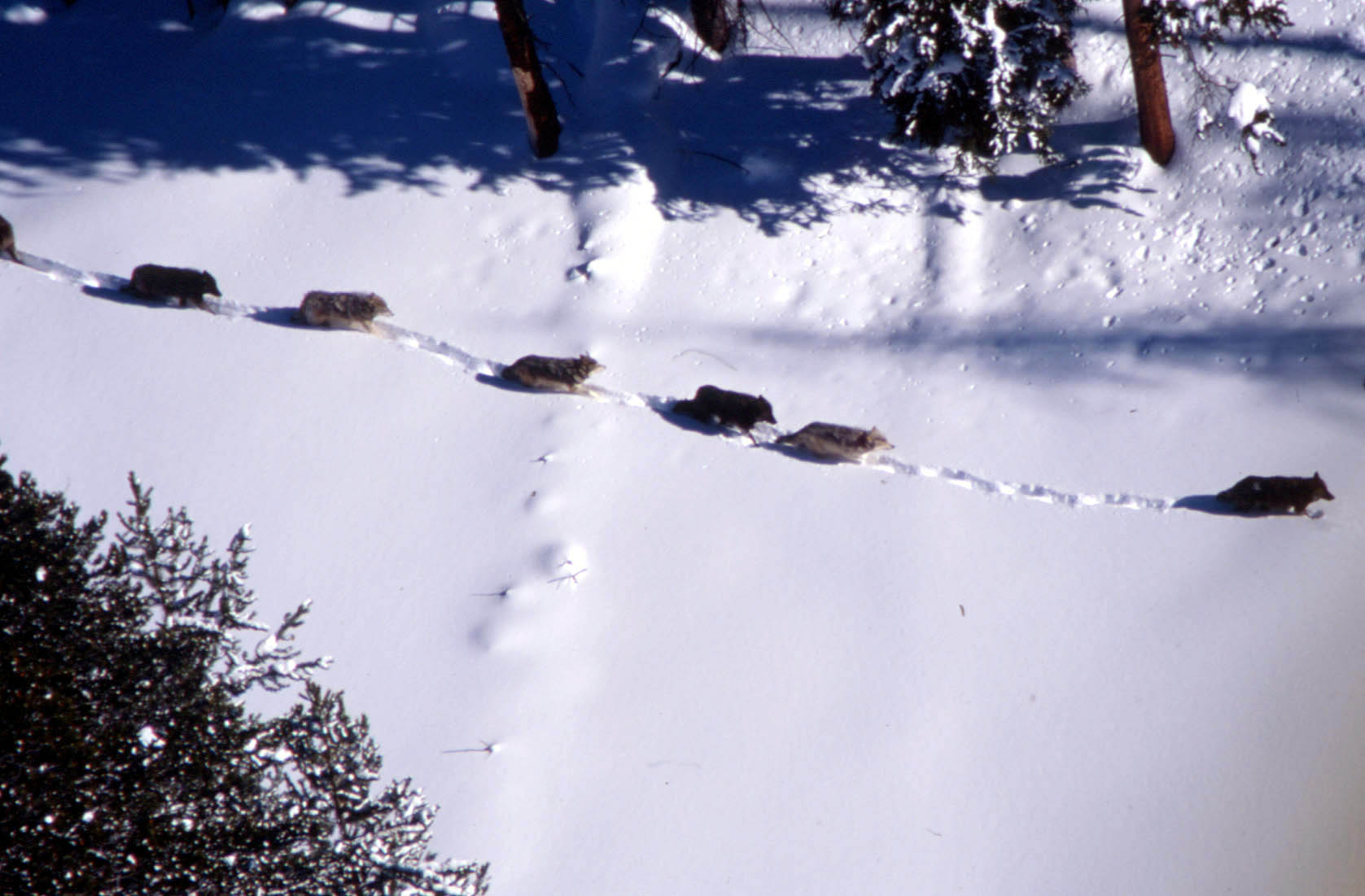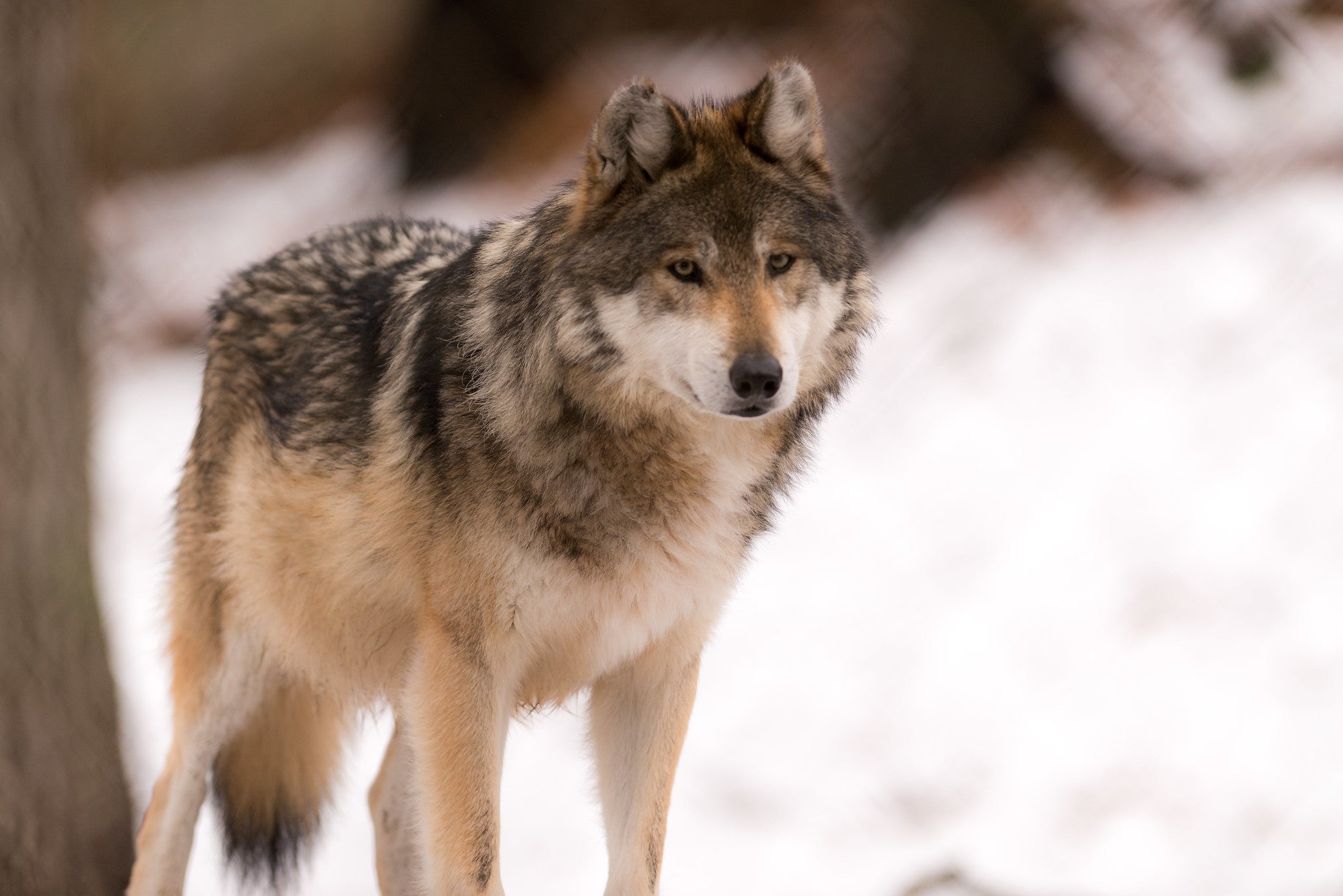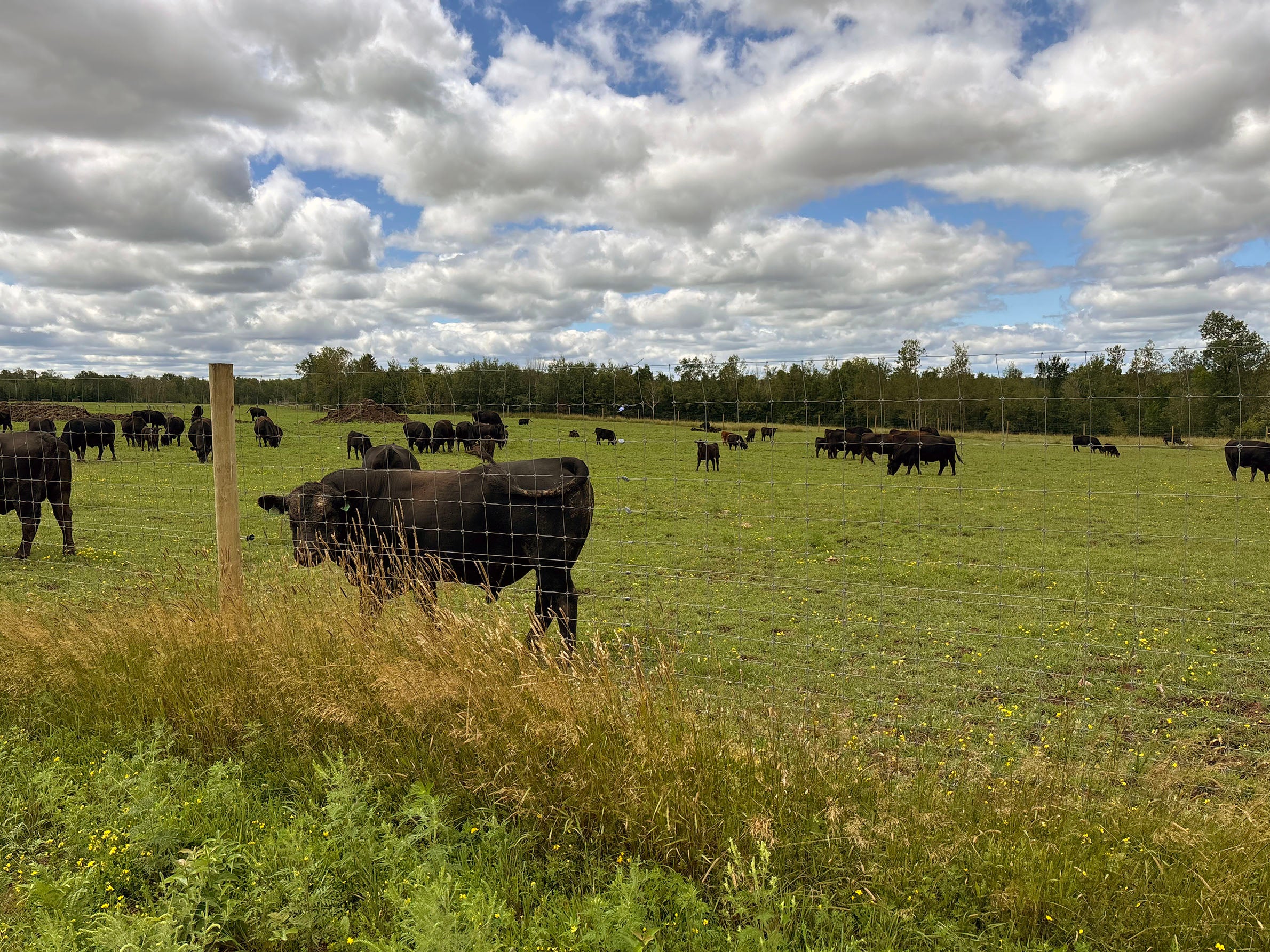Federal wildlife regulators have denied petitions submitted by hunting groups that sought to remove or reduce protections for gray wolves in the western Great Lakes region and West Coast states.
The Sportsmen’s Alliance Foundation, Wisconsin Bear Hunters’ Association, Michigan Bear Hunters Association and Upper Peninsula Bear Houndsmen Association filed the petitions with the U.S. Fish and Wildlife Service in June 2023.
The groups argued the agency should designate and delist distinct populations of gray wolves in the western Great Lakes region and the West Coast because the animals have recovered. They said removing federal protections for wolves was warranted in the Great Lakes region, as well as downlisting the wolf’s status from endangered to threatened in West Coast states.
“Based on our review, we find that the petitions do not present substantial scientific or commercial information indicating that the petitioned actions may be warranted,” the agency wrote in its decision.
The Humane Society of the United States celebrated the decision. Amanda Wight, the group’s senior program manager of wildlife protection, said some groups are willing to forgo science to eliminate wolves. She said gray wolves are still absent from most of their historic range.
“The petitions ignored the best available science, which really demonstrates that wolves must be federally protected,” Wight told WPR. “If federal Endangered Species Act protections are taken away, states will almost certainly move to open trophy hunting and recreational trapping seasons.”
Wight noted Wisconsin law mandates a wolf hunt when the animals aren’t under federal protection. She highlighted the state’s February 2021 wolf hunt. State-licensed hunters killed 218 wolves in less than three days, surpassing a quota split between state hunters and Ojibwe tribes.
Carl Schoettel, president of the Wisconsin Bear Hunters’ Association, declined to comment Tuesday until he had a chance to review the agency’s decision.
Todd Adkins, senior vice president of the Sportsmen’s Alliance, said the groups want to see wolves managed effectively, not eliminated. He told WPR the agency’s decision ignores science.
“I can only assume it’s based on politics, because the data is clear. Gray wolves in the western Great Lakes have far exceeded recovery goals that have been established for a very long time,” Adkins said. “The people of Wisconsin, Minnesota and Michigan have been dealing with relative overabundance and the problems associated with over abundance in some areas because they remain fully protected under the ESA.”
Wisconsin had 98 verified wolf conflicts last year, according to data from the Wisconsin Department of Natural Resources. That’s up from 78 in 2023 and 59 in 2022. Last year, 31 farms reported 63 verified complaints involving livestock, representing a tiny fraction of the state’s 58,500 farms.
Adkins said the agency failed to act on the petitions for more than a year until groups sued in September to compel a decision. He said they’re reviewing options for a legal challenge.
The groups argued that gray wolves have long exceeded goals laid out in a 1992 wolf recovery plan, which called for a self-sustaining population of 100 to 200 wolves outside of Minnesota. Around 4,400 wolves are found in the Great Lakes region, as well as nearly 2,800 wolves in seven western states.
Wight said that plan is vastly outdated. Federal wildlife regulators are set to release the first ever national recovery plan for wolves by the end of this year.

Wisconsin lawmakers have put forth bills to change the wolf’s status
Stay informed on the latest news
Sign up for WPR’s email newsletter.
The gray wolf is listed as endangered in 43 states, including Wisconsin, after a federal judge restored protections for the animal in 2022. The wolf had been delisted in 2021 after federal wildlife regulators proposed removing protections for the species during President-elect Donald Trump’s first term. In 2011, Congress removed Endangered Species Act protections for wolves in the Northern Rockies region.
Wisconsin lawmakers have put forth bills to remove or reduce protections for gray wolves in the Great Lakes region. Last year, Democratic U.S. Sen. Tammy Baldwin introduced a bill that suggested the threatened listing for Minnesota’s wolf population should be expanded to include Wisconsin and the Upper Peninsula of Michigan. The designation, which has been in place since 1978, would allow killing of wolves that threaten people, pets and livestock.
Meanwhile, Republican U.S. Rep. Tom Tiffany, R-Minocqua, was among lawmakers who co-sponsored a bill last year to remove gray wolves from the endangered species list across most of the country. The bill passed the U.S. House, but it didn’t advance in the Senate.
“This is another decision where the Biden administration sided against science, as evidence shows that the gray wolf has recovered,” Tiffany said in a statement. “However, I remain confident that with President Trump back in the White House, we will get the gray wolf delisted.”
Tiffany plans to revisit his legislation to delist the wolf in the new Congress that would have prevented any further judicial review of the animal’s status. That would ensure wolves remain under state management and put Wisconsin’s new wolf management plan into effect. A DNR spokesperson said the agency stands ready to assume state management if there’s any federal change in the wolf’s status.
Wight said they’ll work with lawmakers in Congress to demonstrate why wolves should remain under federal protection.
Wisconsin Public Radio, © Copyright 2025, Board of Regents of the University of Wisconsin System and Wisconsin Educational Communications Board.




